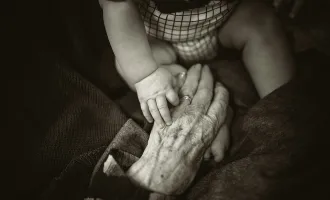Letter from the Chancellor on the Ebola crisis
Dear Members of the UCSF Community,
We all have been deeply saddened by the events transpiring in West Africa, which is experiencing the worst Ebola outbreak in history. The disease has killed several thousand people, and without a massive international effort, it could kill tens or even hundreds of thousands more.
President Obama has issued a call for experienced U.S. health workers to travel to the area, and I expect UC San Francisco doctors, nurses, lab technicians and other clinical health workers will want to join the effort, as, indeed, some already have.
I have charged a task force to advise me on the campus response to the crisis, and I want to assure the UCSF community that I am thinking of the safety of everyone involved. We are taking every precaution to ensure that those who go receive as much training and support as possible, both for their own personal protection and to avoid spreading the disease to others. George Rutherford, MD, professor of Epidemiology and director of the Prevention and Public Health Group in UCSF Global Health Sciences, and Theresa O'Brien, PhD, Associate Chancellor, have agreed to serve as campus liaisons for this effort, and I deeply appreciate their leadership.
We have prepared guidelines, which we will update as the situation evolves, and all UCSF personnel seeking institutionally approved leave will be required to follow them. Volunteers must be licensed clinical care providers and must take the special Ebola training offered by the Centers for Disease Control and Prevention (CDC) before departing for West Africa. They also must work under the auspices of a recognized governmental or non-governmental organization with the experience and resources to ensure the safety of its staff.
For those who would like to contribute in other ways, we are setting up a vacation bank to donate paid time to those who are travelling to West Africa to respond to the crisis. In response to questions from alumni and friends, we have gathered information on how to donate to Ebola outbreak efforts.
UCSF Medical Center also has been preparing to ensure the safety of our health care workers and patients, in case a patient with Ebola arrives at one of our hospitals. A communicable disease management and exposure response policy has been in place and tested for many years. A separate task force comprising many different hospital departments has been meeting since August and is coordinating with the CDC and other public health agencies. A town hall to discuss our preparations is being planned. Information will be communicated in the next few days.
UCSF has posted an Ebola resource page, with links to the guidelines, the vacation banking policy, how to donate and other general information. If you have other questions about UCSF’s response to this crisis, please feel free to email them to ebola@ucsf.edu.
I believe that UCSF has a great deal to offer in the global effort to contain the outbreak, through direct service, as well as through discovery, clinical epidemiological and implementation research. We know that many in the UCSF community are passionate about the need to respond directly to this crisis. We honor this desire to serve and know that it must be balanced with the need to ensure everyone’s safety.
Sincerely,
Sam Hawgood, MBBS
Chancellor
Arthur and Toni Rembe Rock Distinguished Professor



